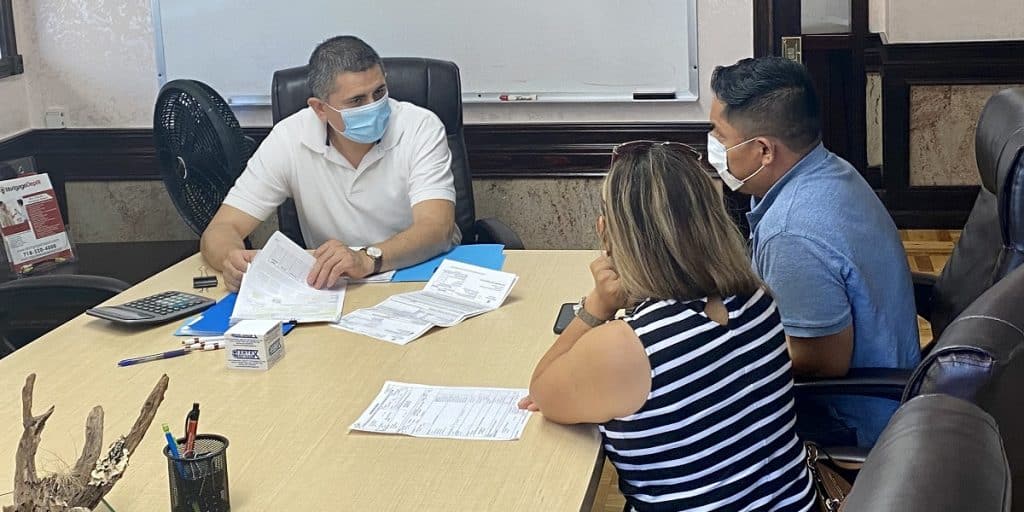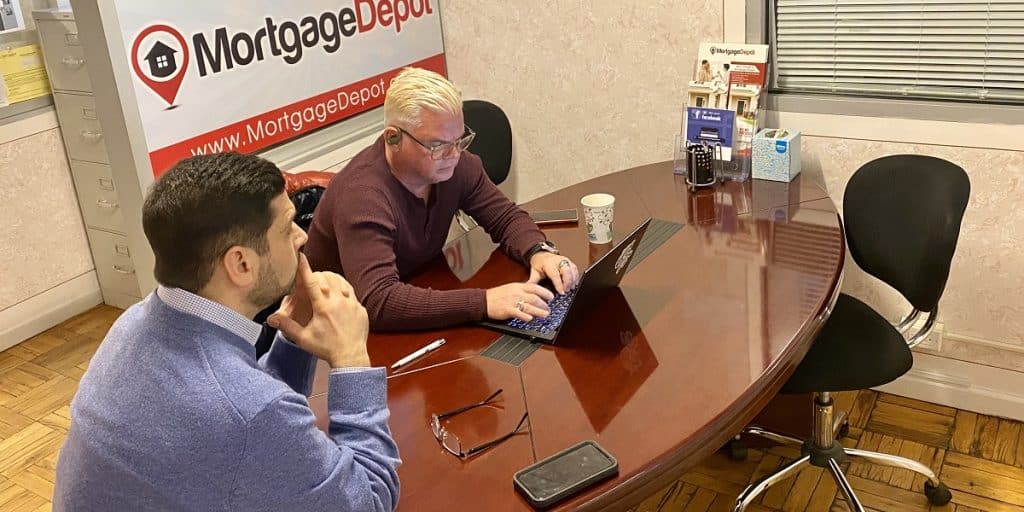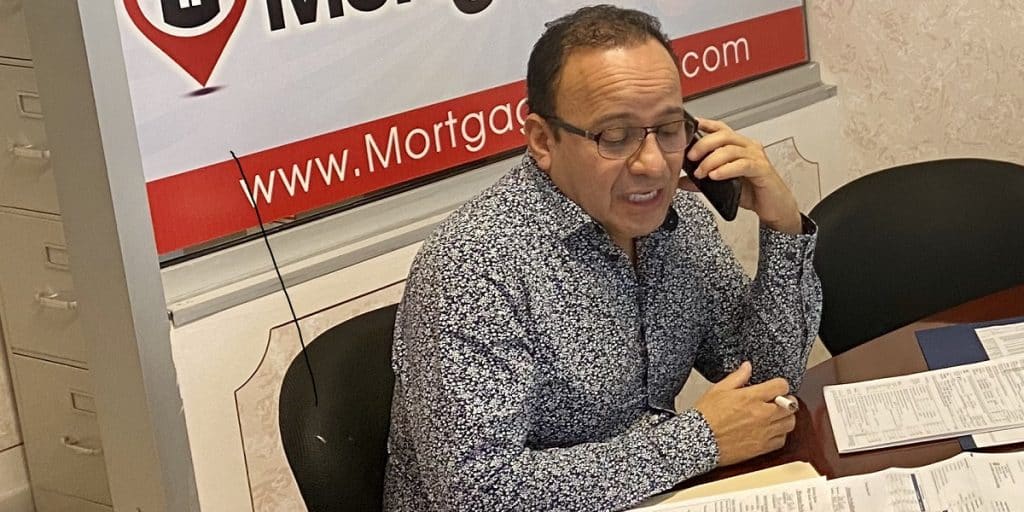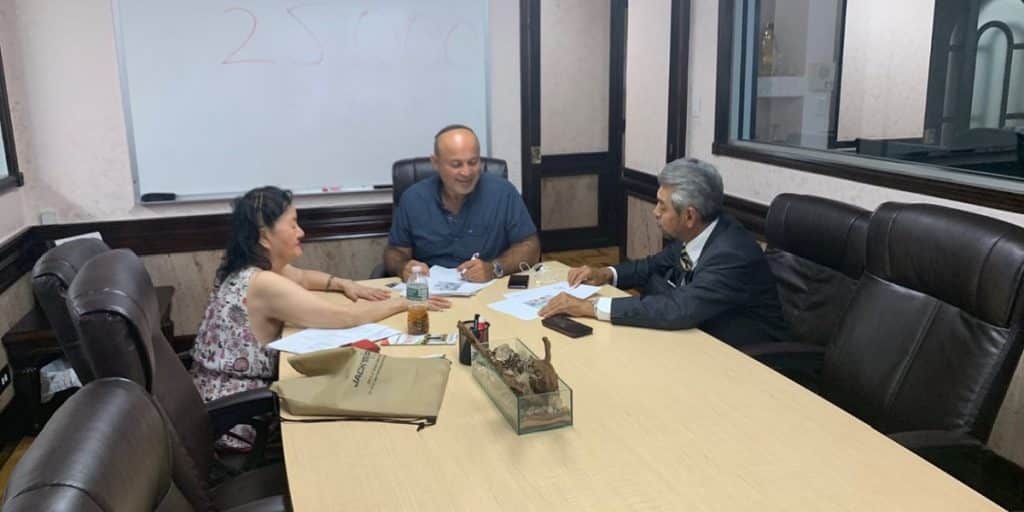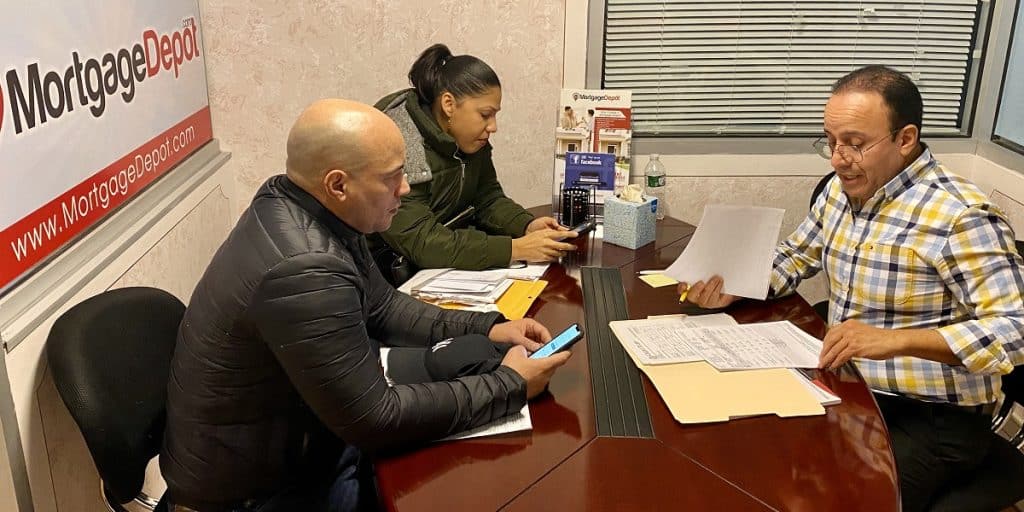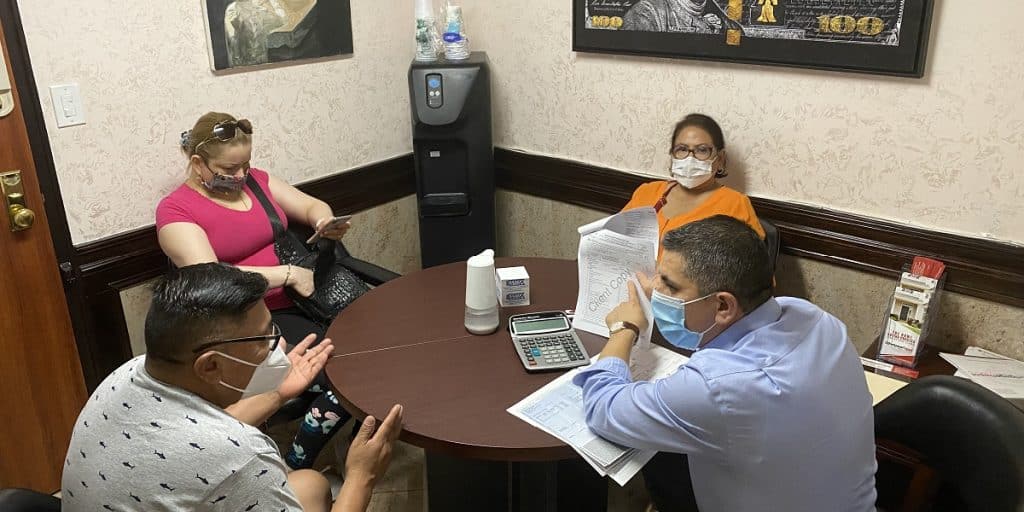
So, whether you’re a first time homebuyer seeking a mortgage, or a current homeowner looking to refinance and you’re an old pro at this, these are the three basic questions every borrower should ask their mortgage loan broker. That’s because mortgage brokers can be the “most valuable” players in identifying the best home loan products for their clients. Not only do brokers submit various interest rate options to their clients, but they also help to navigate the myriad loan choices, from term to type.
Mortgage Loan brokers at MortgageDepot serve as the conduit between lenders and borrowers. Our Mortgage brokers offer their clients multiple lending options when it comes to choosing a rate and a lender. Each mortgage loan broker’s fees gets paid by either you, the homeowner or the lender based on a percentage of the approved loan amount, which is typically in the 1 percent to 2 percent range for each borrower.
Why should you use a broker then? MortgageDepot’s loan brokers have access to some great rates. For example, our partners at United Wholesale Mortgage, which provides loans through brokers like us, began in May, offering interest rates as low as 2.5 percent for 30-year fixed purchase mortgages and refinances.
1. What is the best mortgage for me?
Even though every mortgage type will get you sane results (buying a home), but the experience and costs will be different. Your broker should fully understand your unique financial situation before making recommendations for the best type of mortgage loan for you.
For example, someone who wants to minimize interest and pay down their mortgage faster, they might be better off in a 15-year term mortgage. However, that comes with the caveat that it is not ideal if you plan on selling the home in a less than 5 years. And likewise, someone who has had credit challenges or only has a smaller down payment might do well to explore the option of FHA loans.
The vital details your broker must assess to identify the best mortgage for you.
A good broker will personally match a mortgage with your short- and long-term financial goals. And if your broker is too quick to put you into a loan that doesn’t fit your situation, keep your options open by shopping around.
2. What is the cost of my mortgage?
All licensed, professional mortgage brokers are required to itemize all their fees upfront and not charge any more than that stated amount. Pay very close attention to the interest rate of the loan and any other fees and costs charged by the lender. Then compare these figures with the other all-inclusive costs of a mortgage from at least several lenders. Every Mortgage broker is required to provide the borrower with a loan estimate per the Consumer Financial Protection Bureau rules.
A mortgage estimate requires, at a minimum, the following borrower information:
- Social Security number
- Income
- Property address
- Appraisal
- Loan amount requested
The more accurate, timely information that you can provide, the more accurate your mortgage loan estimates will be. Each loan estimate should include mortgage interest rate, as well as costs of closing, taxes and insurance. It should also include the estimated monthly payment.
Based on the figures that you’re given, you can see whether that fits into your monthly budget and you can also comparison-shop. If the amount is too high, ask your broker about other available options such as FHA loans or local first-time homebuyer programs.
3. Buy points VS making a larger down payment
Every borrowers financial circumstance are different so there is no single answer to this question, but your mortgage broker can help you understand the pros and cons of the different options, such as buying points versus putting down a large down payment. The general rule is that it’s never a good idea to drain your savings for any purchase, even including a house. Most experts unanimously agree that folks should save enough to cover between three to six months of emergency expenses. That means that you should also include your soon-to-be mortgage payment in your emergency-fund calculation.
The more information you give your broker about your financial goals (do you want to invest your money, start a business, buy a second home) and future plans, the better they can help you strategize on how to approach financing your mortgage loan.
For example, homebuyers who don’t plan on staying in the home long-term might not want to spend cash on points (which push your interest rate down). Since you won’t have that 30-year mortgage, the amount you spend on points will likely outweigh what you will save on interest in the short term.
And the same goes for a down payment. Typically, conventional mortgages require private mortgage insurance (PMI) for down payments of less than 20 percent of the purchase price of the property. PMI usually costs somewhere .55 percent to 2.25 percent of the purchase price annually until your equity in the property reaches 20 percent. Budget wise, this means that you could pay $100 or more per month extra on your mortgage. However, if putting down 20 percent means using up all of your savings, then you might want to explore other mortgage options.
But there are some lenders that don’t require PMI, as well as certain other loan types, like VA loans, that don’t require this insurance. Just be sure to find out what you qualify for before you get locked into a mortgage loan.
Before you choose a mortgage
A mortgage is a long-term commitment, so it is critical that you do your research before you sign any contract. Compare what the average interest rate for the type of mortgage you want is. Working with a Mortgage Broker at MortgageDepot is a great place to start; we’ll give you a snapshot of what multiple lenders are offering. If your current broker is providing estimates that are not in line with the average rate, we can help you find out the reasons why, and advise you on what you can do to get the lowest rate that you’re after.
When it’s time to select a mortgage broker, our brokers come with recommendations and have years of experience. MortgageDepot’s brokers will collect all the important information about your finances as well as your future financial goals before making any recommendations on financing your mortgage loan, so contact us today at MortgageDepot.com
Have questions or need help?
Call us now at 800-220-LOAN
Request a call back or email us your questions!



